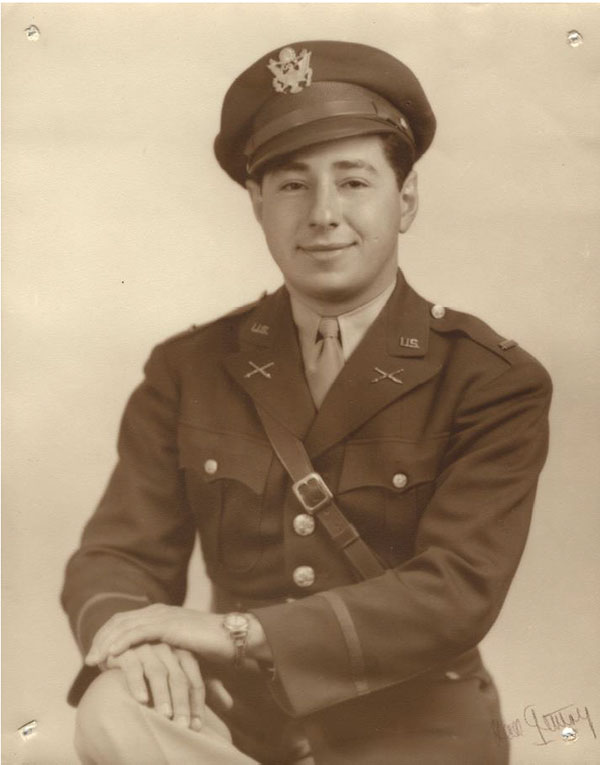Texas Liberator Lee Berg
By: Nicole Lundberg

Lee Berg was only 26-years-old when he encountered the horrors of Dachau.
During World War II, Berg, of Dallas, served as a first lieutenant in the 102 Infantry Division of the United States Army. The division fought in major conflicts including the Battle of the Bulge, where Berg's heroism earned him a Bronze Star.
Berg and his comrades fought in the Battle of the Bulge, the final German offensive and the costliest battle for U.S. troops. After the Allies won the battle, the division forged through Germany where they helped liberate Dachau. His daughter-in-law, Fran Berg, said the sights he encountered as he cleaned up the camp impacted him tremendously, but he rarely talked about the experience.
"Dad frequently woke up in the middle of the night with nightmares," Fran said. "I think he had post traumatic stress."
Although he could not erase the images of the desperate, emaciated prisoners and the piles of bodies he helped move into graves from his mind, he never spoke about his experiences, she said.
"His family always knew he had fought in World War II, but they knew not to ask him for specific details," Fran said. " Then one evening at dinner my father, who was a historian, asked him which division he fought in. When he said the 102nd, my father looked at all of us and said 'this man is a hero.' That was the first time his family knew he had freed the camp."
For the remainder of his life, he spoke very little of his wartime experiences. In fact, his family did not know he had earned a service medal until they found it in a shoebox after he died, Fran said.
"Dad never saw himself as a hero," Fran said. "He said, ' I just did what anyone would have done in my situation.' He was just doing his job."
Just before his death, Lee agreed to share his experiences in an interview about his experiences at Dachau for the purpose of educating future generations, Fran said. Pieces of his experiences will be included in the Texas Liberators app, created by Texas Tech University with funding from the Texas Holocaust and genocide Commission, which will be distributed to high school students across the United States.
Discoveries
-
Address
Texas Tech University, 2500 Broadway, Box 41075 Lubbock, TX 79409 -
Phone
806.742.3905 -
Email
vpr.communications@ttu.edu
